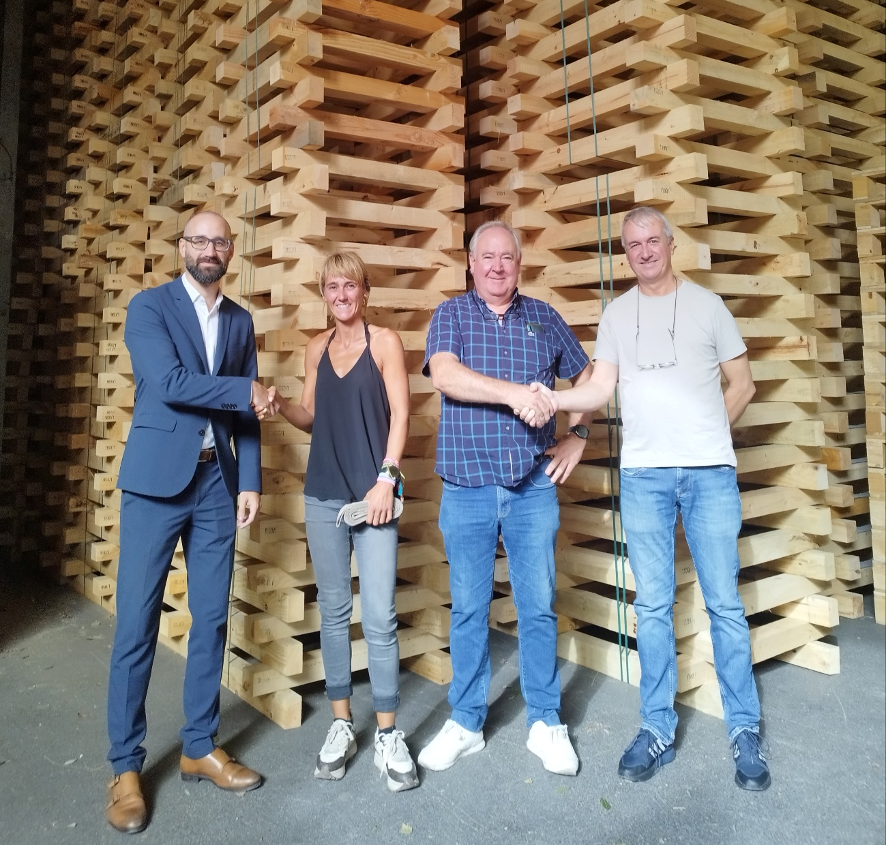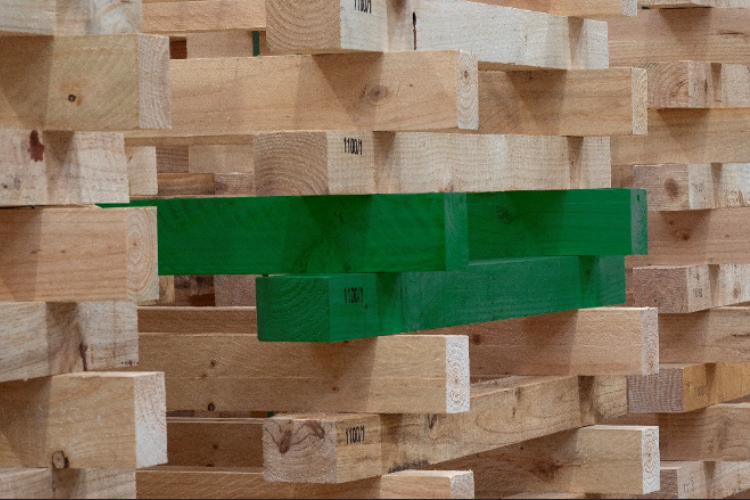DECARBONISING LOGISTICS
The road to decarbonisation has begun! ARANIA aims to achieve carbon neutrality by 2040. This forward-looking target has been set as a declaration of intent in line with the requirements and expectations in our industry, applying a proactive and leading stance, but keeping in mind that many challenges are still to come.
To this end, several programmes have been implemented across all levels of the company, an effort targeted towards the continued, step-by-step but sustained reduction of emissions in all organisational areas, including logistics.
When speaking on this issue, logistics represents an area with great potential for improvement, where important steps towards decarbonisation have also been taken, even if this category of emissions is not the most significant in terms of global organisational and product footprint
According to the principles of a circular economy, the ARANIA team has implemented a variety of projects, at different stages of the company, with the aim to reduce, reuse and recycle:
ARANIA offers to its clients the option of dispatching packaging-free products, either in ‘eye-to-sky’ format or in ‘eye-to-wall’ configuration, which also avoids the use of pallets. The use of this shipping method depends on the type of product and the client’s industrial processes.
Some materials cannot always be eliminated, such as the transparent film used to protect the steel products against oxidation during storage and transport. Consequently, it was decided to accurately reduce these material to the minimum thickness without compromising functionality. This particular project has been able to decrease by nearly 50% the footprint for transparent film per shipment.
In terms of carbon footprint reduction of the transport methods as such, ARANIA has managed to successfully substitute a significant number of shipments by switching from lorry transport to an intermodal system, thereby reducing by almost 85% the carbon footprint of these deliveries. For instance, 100% of shipments to Italy are now operated via intermodal logistics, a system managed through a local buffer warehouse to reduce the number of consignments and optimise transport loads, with the purpose of achieving the highest level of efficiency and the lowest carbon footprint. In this sense, 2024 will witness the implementation of another similar warehouse in France, designed to serve clients both in France and Germany.
Furthermore, internal logistics offers an additional scope for decarbonisation. This is why ARANIA has already replaced 70% of its fuel-driven forklift fleet with electric vehicles, powered by 100% renewable electricity, which is partially generated by the company’s own photovoltaic panels. In the coming years, all the remaining forklifts will be replaced. In the meantime, ARANIA is currently working on a project involving the use of biofuel to further reduce emissions.
An excellent example of how to reuse packaging materials can be found in ARANIA’s pallet recovery programme. For several years, ARANIA has been working hand in hand with its clients and pallet suppliers, building a reverse logistics circuit to recover pallets once used, thus reintroducing these assets into the system and reducing the consumption of new wood.
In order to improve the overall carbon footprint of the process, priority is placed on returning the pallets by intermodal method, i.e. by train, therefore ensuring that the carbon footprint of the recovery programme does not exceed the emissions generated by the production of a new pallet.
When new pallets have necessarily to be manufactured, ARANIA relies on local suppliers such as MADERAS ETXEARI S.A., guaranteeing that the wood used is labelled with the PEFC seal, which certifies its origin from sustainably managed forests. Moreover, this wood is always obtained from local forests within a 50 km range, and using 100% renewable electricity during processing. To take this a step further, MADERAS ETXEARI S.A. is reusing the sawdust generated in their sawmills as fuel for drying kilns. Then, the ashes are used to fertilise vegetable gardens in the surrounding area.

From the perspective of a circular economy, recycling should always be the last option. It is therefore essential to seek the maximum level of recycled material while minimising the use of new materials in shipments where packaging cannot be avoided. For example, the new plastic material used for coil strapping is now made from 100% recycled material. Steel strappings are also 100% recyclable and delivered to ARANIA via intermodal transport, as part of the carbon footprint reduction strategy.
All in all, ARANIA is committed to the decarbonisation of all its processes, which means offering increasingly sustainable products and services to its clients, with lower carbon footprint. In this regard, ARANIA will continue to strive for carbon neutrality by 2040. As a trusted partner, this approach involves supporting clients in their own decarbonisation programmes.
To find out more about ARANIA’s decarbonisation plan, or if you wish to learn more about the strategy deployed to support our clients in their own decarbonisation, please do not hesitate to contact us at info@araniasa.com
